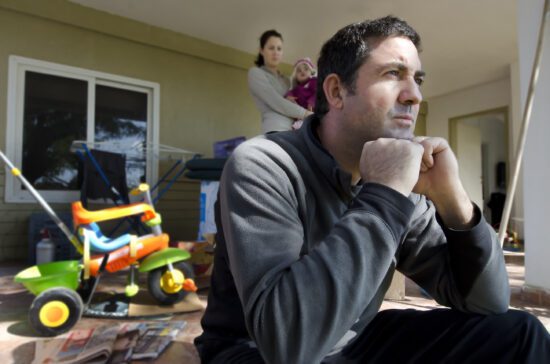Note: This address was originally given at the Idara-E-Jaferia Islamic Community Center in Burtonsville, Maryland.
Introduction & Thanks
Good evening. Thank you for having me here tonight for this intriguing and important discussion of the rights of our neighbors. It is an honor to be with you. It may be helpful for you to know something of my connection to this event. For over a decade now, I have had the privilege of being friends with Rahat Husain, a member of the Islamic community. I can’t remember when and where Rahat and I first met, but our discussions have always been meaningful and significant. Whenever we do get together, I am grateful that we are able to have consequential and cordial conversation about the differences in our faiths.
Let’s dive right into the topic that is before us. I want to make two related points in thinking about the rights of our neighbors. I don’t have time to address everything I assert, so if something strikes you as interesting and you want to circle back to it, let me encourage you to make a note and bring it up in the time of Q&A.
First, I want us to see the need for rights, and then I want us to see the need for love. To do that I want us to consider a conversation that Jesus had with a religious lawyer. This conversation is recorded in chapter 10 of Luke’s Gospel. That is in the New Testament portion of the Bible. As a Christian, I hold that the Bible is the God’s totally trustworthy and true Word.
To set the scene, we should understand that a critical moment has taken place in Jesus’ life and ministry. In Luke chapter 9, Jesus has revealed that he is going to Jerusalem to die for the salvation of sinners. Jesus is traveling and walking on the road that leads to his death. On this road he is teaching and healing and interacting with all sorts of people. Please listen as I read from the New Testament about one of Jesus’ interactions on the road to his death from Luke 10:25-37.
25 And behold, a lawyer stood up to put [Jesus] to the test, saying, “Teacher, what shall I do to inherit eternal life?” 26 [Jesus] said to him, “What is written in the Law? How do you read it?” 27 And [the lawyer] answered, “You shall love the Lord your God with all your heart and with all your soul and with all your strength and with all your mind, and your neighbor as yourself.” 28 And [Jesus] said to him, “You have answered correctly; do this, and you will live.” 29 But [the lawyer], desiring to justify himself, said to Jesus, “And who is my neighbor?” 30Jesus replied, “A man was going down from Jerusalem to Jericho, and he fell among robbers, who stripped him and beat him and departed, leaving him half dead. 31 Now by chance a priest was going down that road, and when [the priest] saw him he passed by on the other side. 32 So likewise a Levite, when he came to the place and saw him, passed by on the other side. 33 But a Samaritan, as he journeyed, came to where he was, and when [the Samaritan] saw him, he had compassion. 34 He went to him and bound up his wounds, pouring on oil and wine. Then he set him on his own animal and brought him to an inn and took care of him. 35 And the next day [the Samaritan] took out two denarii and gave them to the innkeeper, saying, ‘Take care of him, and whatever more you spend, I will repay you when I come back.’ 36 Which of these three, do you think, proved to be a neighbor to the man who fell among the robbers?” 37 [The lawyer] said, “The one who showed him mercy.” And Jesus said to him, “You go, and do likewise.”
The Need for Rights
I wonder if you hear the need for rights and the need for love in this reading from the Bible. The need for rights and the need for love seems obvious enough, doesn’t it? A man gets beaten up on a road. That’s not right, and several rights were violated. Jesus’ parable is also pretty realistic too. This kind of thing happened on that road from Jerusalem to Jericho. People were often beaten and robbed on that road.
This is kind of thing happens in our world too, doesn’t it? I mean, we can think of this happening to a man traveling from Burtonsville to Baltimore, can’t we? When we read this story and see this kind of thing play out in our world, we think to ourselves or we should think to ourselves, “This man deserved to have his rights of life, liberty, and the security of his person protected.” It seems to me that we as human beings instinctively know that rights are a necessity in our world. I hope that is something we can all agree on. Deep down in our consciences we know that rights are needed, but why are they needed?
The answer ties directly to what Jesus says and what we just read in Luke 10. In fact, it ties into the story of the Bible from the very beginning. In the very first chapter of the Bible, in the Torah, in Genesis chapter 1, we learn that God created the world and everything in it. God is the author of life, and he told us in Genesis 1:26 that he made man in his image. He even made the first neighbors when he made Adam and Eve.
Because man bears the image of God, when our fellow man is attacked, God, by extension, is attacked. When we fail to love our neighbor, we actually fail to love God. Indeed, the reason we fail to love our neighbor is because we have failed to love God. If we are honest with ourselves, we will confess that our neighbors need rights because we are sinners. We have failed to love God with all that we have and all that we are. We have broken God’s good commands just like our first parents, just like Adam and Eve did in the Garden of Eden.
When Adam and Eve sinned and rebelled against God, when they decided to love themselves instead of loving God, the perfect loving relationship between the first two neighbors in world history crumbled. Adam blamed Eve for his sin. Tell me, when spouses start blaming one another in a marriage relationship, is that a happy relationship? No. When Adam and Eve sinned against God, not only did their love for God fail, but so did their love for one another. Because this was true for Adam and Eve, it became true for the rest of humanity. How could it not, with everyone descending from Adam and Eve?
Why do our neighbors need rights? Frankly, our neighbors need rights because we are sinners who love ourselves more than we love God. Everyone is a sinner, and we know this because we not only see it in the news and in our neighborhoods, but also because we see it in our own hearts. We have not loved God with everything that we have and are.
We also know from the Scriptures and from our own consciences that God his holy, just, and good. Because God is holy, just, and good he cannot allow sin to go unpunished. God must punish sin, and so all of humanity stands in danger of facing his eternal punishment against our sin in hell. Our sin demands an eternal punishment because we have sinned against the one eternal God. We deserve an eternal death for our sin. So what are we to do? This is where I’d like us to come back to Luke 10 to remember afresh that conversation between Jesus and the religious lawyer about loving our neighbor. This is where we see the need for love.
The Need for Love
Remember that the conversation first began with the lawyer wanting to test and trap Jesus. Does seeking to trap Jesus sound like the lawyer really wanted love his neighbor when he asked, “Who is my neighbor?” Luke told us the lawyer wanted to justify himself. He loved himself. Jesus then told that parable about what loving your neighbor really looks like. Do you remember how Jesus concluded it? Jesus said to the lawyer, “You go, and do likewise.” Jesus was not telling the man how he might go and earn eternal life. We cannot earn salvation through good works, so what was Jesus telling the man?
Jesus was telling this man, “You don’t love God or your neighbor.” We know that this man did not love God and his neighbor because in the parable, Jesus didn’t make the religious figures the hero. He made the hated Samaritan the hero, and when Jesus asked him, “Which one proved to be a neighbor to the man who fell among the robbers?” The lawyer couldn’t even bring himself to say the word, “Samaritan.”
Friends, not a single one of us here tonight has perfectly loved God with all of our heart, soul, mind, and strength. Not a single one of us here tonight has loved our neighbor as much as we have loved ourselves. The only way that we can receive eternal life is by recognizing that Jesus was the only one who ever perfectly loved God with all of his heart, soul, mind, and strength. And Jesus loved his neighbor more than life itself. We see the supreme display of Jesus’ love for God and neighbor in his death on the cross. On the cross Jesus took the sins and the punishment due to them for all of those who would ever turn from their sins and trust in him alone for salvation. Three days after his death, God the Father, raised Jesus from the dead vindicating him and proving to us all that his love for God and neighbor was perfect.
We can’t earn eternal life through our love of neighbor. Only Jesus can give us eternal life because only he perfectly loved God and neighbor. Only Jesus can give us eternal life, because he is the only one who conquered death to secure it. We need his love, and the good news is, that he invites us to receive his love through turning from our sin and placing our faith alone in him for salvation. There is salvation in no other name but Jesus, so put your faith in Jesus.
Conclusion
As I conclude, I want to stress that we are indeed called to love our neighbor, and part of that love means protecting his rights. But hear me clearly, we can only love our neighbor, because we have first been loved the Good Neighbor, Jesus Christ. It is in response to Jesus love that we properly love our neighbor, and that love will cost us something.
Jesus showed us that in the parable of the Good Samaritan, where the Good Samaritan gave up his resources, his time, and his money. You see, actually loving our neighbor and protecting his rights actually burdens us and costs us something. Jesus taught us this in the parable of the Good Samaritan, but ultimately, he taught us this in his death. He gave up his right to a fair trial, his right to due process, his right to the protection of his person, and ultimately his right to life. So that the wounds that you and I have been inflicted with on the road of this life might be healed. May we love God with all that we have and all that we are, and may we love our neighbors as ourselves, because we see and believe that Jesus first loved us. Thank you for the privilege of speaking to you tonight, I look forward to our discussion.










